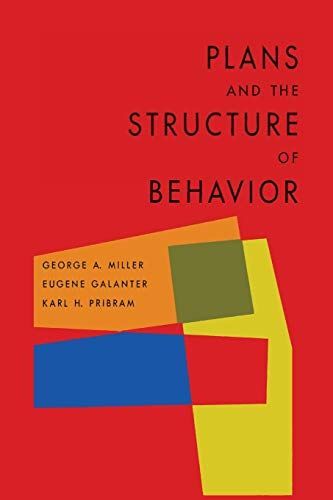
Plans and the Structure of Behavior
2013 Reprint of 1960 Edition. Full facsimile of the original edition, not reproduced with Optical Recognition Software. By 1960, psychology had come to be dominated by behaviorism and learning theory, which emphasized the observable stimulus and response components of human and animal behavior while ignoring the cognitive processes that mediate the relationship between the stimulus and response. The cognitive phenomena occurring within the "black box" between stimulus and response were of little interest to behaviorists, as their mathematical models worked without them. In 1960, the book "Plans and the Structure of Behavior," authored by George A. Miller, Eugene Galanter, and Karl H. Pribram, was published. In this volume, Miller and his colleagues sought to unify the behaviorists' learning theory with a cognitive model of learned behavior. Whereas the behaviorists suggested that a simple reflex arc underlies the acquisition of the stimulus-response relationship, Miller and his colleagues proposed that "some mediating organization of experience is necessary" somewhere between the stimulus and response, in effect a cognitive process which must include monitoring devices that control the acquisition of the stimulus-response relationship. They named this fundamental unit of behavior the T.O.T.E. for "Test - Operate - Test - Exit."